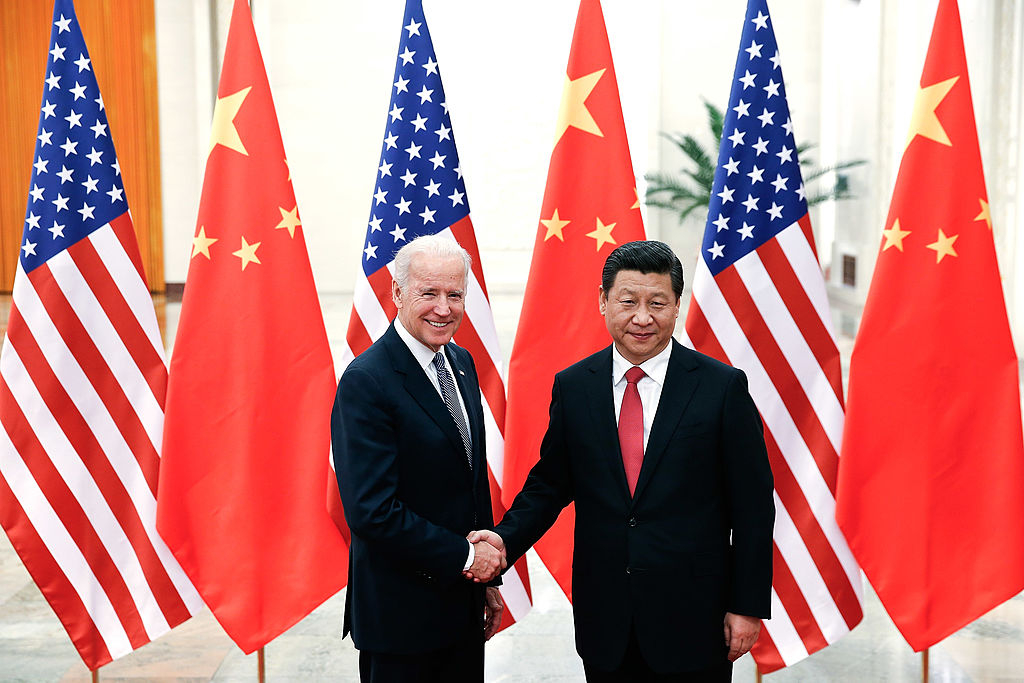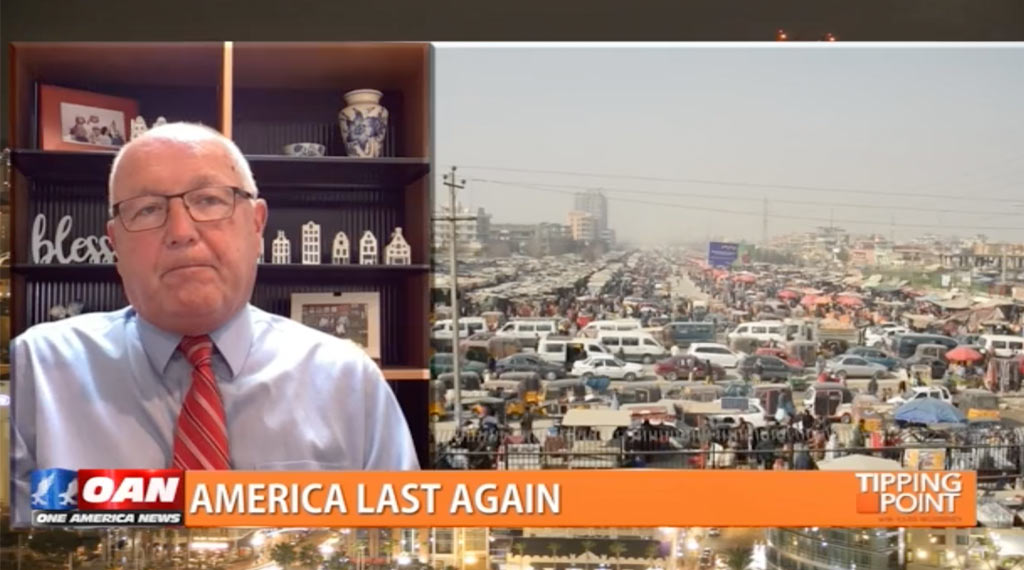
By Pete Hoekstra | Gatestone Institute | November 2, 2021
- How does a president who is struggling on so many fronts lead a nation against China, its biggest geostrategic competitor? China’s military buildup, the ongoing genocide against the Uyghurs, America and the West’s over-reliance on China in the supply chain, Chinese aggression against Taiwan and in the South China Sea, and China’s aggression against India along the common land border are all pressing issues that are only getting worse.
- The Chinese communists have made clear in word and deed, however, including their Belt and Road Initiative and Made in China policies, that they have every intention of knocking-off America as global leader and supplanting the West in global standing.
- [I]n 2008 Russia invaded the Republic of Georgia. European Union leaders offered a pitifully limited response and Russia faced very few negative reactions from either the EU or the U.S. But there were consequences. Many believe this painfully mild answer was an indicator to Russia that it could employ a more militaristic approach in areas of previous Russian influence. Six years after its invasion of Georgia, Russia invaded Ukraine, annexing Crimea and occupying parts of the Donbas region. The lesson seems clear and quite literal — give a tyrannical country an inch and it will take as many other countries as it can.
- [F]or global stability and the standing of the United Sates, it is time for the president to draw a bright red line signaling to the Chinese communists the limits of what they can do and where they can go.
Less than a year in and Joe Biden’s presidency is beset by crises. Domestically, his increasingly unpopular agenda has been stalled by his own political party in Congress. On the international front, the Afghanistan withdrawal debacle continues to reverberate along with Europe’s growing frustration in dealing with the administration. Even on matters where we can agree, such as the submarine deal and our alliance with the Australia and the United Kingdom to counter China, the announcement was so badly handled it became just another friction point in U.S.-European relations. Then there is China itself. From the origins of COVID to its recent hypersonic missile test — an event the Pentagon’s top general Mark Milley concedes was a near “Sputnik moment” — and China’s ability to crush all US satellites as “debris,” the challenges between the U.S. and China only continue to grow.
Against this backdrop, President Biden went to Capitol Hill to plead with Democrats to come together to pass his big domestic spending plans mere hours before he was set to hit the international stage in Europe for a meeting with Pope Francis, the G20 summit, and a big environmental gathering in Scotland. Notable in all these events, the Vatican announced it would only release a self-edited video of Biden’s meeting with the Pope, and Chinese communist leader Xi Jinping and Russia’s President Vladimir Putin have declined to appear in person for the G20 gathering and climate summit with Biden.
How does a president who is struggling on so many fronts lead a nation against China, its biggest geostrategic competitor? China’s military buildup, the ongoing genocide against the Uyghurs, America and the West’s over-reliance on China in the supply chain, Chinese aggression against Taiwan and in the South China Sea, and China’s aggression against India along the common land border are all pressing issues that are only getting worse.
Making the matter more difficult, the U.S. and many European nations do not agree on the strategy and approach necessary to address Chinese aggression, and are instead focusing on China as a market to do business. The Chinese communists have made clear in word and deed, however, including their Belt and Road Initiative and Made in China policies, that they have every intention of knocking off America as global leader and supplanting the West in global standing.
A free and independent Taiwan stands as possibly the last important test of the issues between the U.S., the West, and China. Having so far failed to force an international resolution of the Chinese Uyghur genocide, the political subjugation of Hong Kong, a credible study of the Wuhan origins of COVID, or Chinese expansionist aggression, Taiwan has emerged as the next big flashpoint and test of American and Western resolve.
Europe has witnessed what happens when a country is allowed to aggressively expand its territorial borders against international norms and how capitulation in the face of aggression only fuels further aggression. In the lead up to World War II, Europe stood aside as Germany annexed Austria and Czechoslovakia’s Sudetenland. The result, as Europe stood aside and engaged in appeasement: Germany continued to conquer more land and engage in genocide and political repression until the world was forced to address the threat.
More recently, in 2008 Russia invaded the Republic of Georgia. European Union leaders offered a pitifully limited response and Russia faced very few negative reactions from either the EU or the U.S. But there were consequences. Many believe this painfully mild response was an indicator to Russia that it could employ a more militaristic approach in areas of previous Russian influence. Six years after its invasion of Georgia, Russia invaded Ukraine, annexing Crimea and occupying parts of the Donbas region. The lesson seems clear and quite literal — give a tyrannical country an inch and it will take as many other countries as it can.
It is for these reasons that the West’s response to aggressive, Chinese expansionist actions in the South China Sea and against Taiwan must be one of vigorous opposition and willingness to intervene. Failure to respond, or even a hint of doubt about countering these actions by China, will be devastating.
China already has signaled it will target areas of Southeast and East Asia and areas where it has established a foothold with its Belt and Road initiative. Our friends and allies across the globe are watching what posture the U.S. will take. China also is watching.
Biden’s presidency really is in a historic crisis at the moment, but for global stability and the standing of the United Sates, it is time for the president to draw a bright red line signaling to the Chinese communists the limits of what they can do and where they can go.



